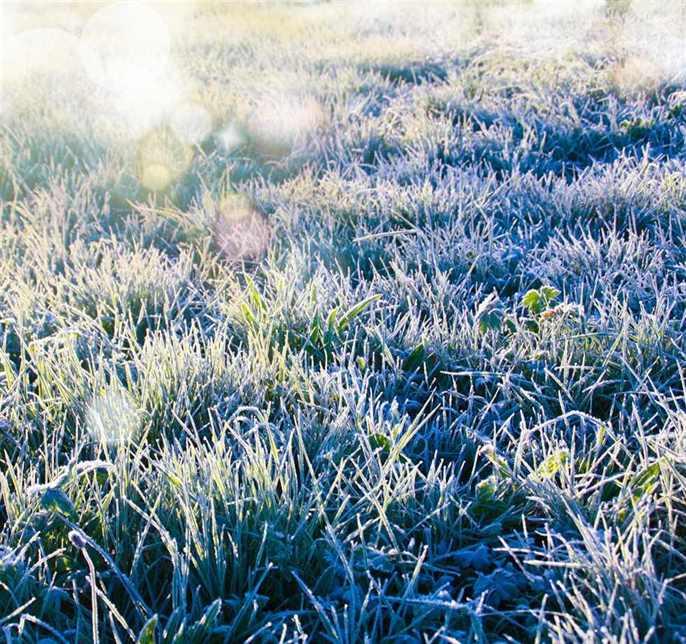
Many Winnipeggers claim to hate the cold, but none can dispute how gorgeous a frosty night can be. October is more than halfway over, and the cold weather is creeping in. Nights with cool air and clear skies aren’t as pretty for your lawn as they are for your eyes. After a chilly night, you might notice that your lawn is turning shades of brown and beige. What can you do to protect your lawn in a city that’s notorious for its cold weather?
Frost occurs when the surrounding air is warmer than your lawn. When water molecules freeze inside a blade of grass, they expand, which damages the plant cells. To help you understand how frost affects your lawn, let’s distinguish between a light and hard freeze. Light frost occurs when the grass freezes, but the ground itself does not. On the other hand, a hard freeze is when the ground freezes completely; nutrients and water are no longer circulated by the lawn’s root system. Your lawn can recover from light frost, as long as you take the necessary precautions.
No matter how beautiful the frost-tipped blades of grass are, they spell out a disaster when it comes to the health of your lawn. How do you stop frost from damaging your turf? For starters, never walk on a frosted lawn – wait until it melts before you set foot on it. Try to keep your children and pets off the lawn, too. The blades of grass are incredibly delicate at lower temperatures and will snap easily. If you need to defrost the lawn in a hurry, try using a sprinkler; this trick is commonly used at golf courses and sports arenas.
Another way to protect your lawn is by raking frequently. Frozen leaves weigh down blades of grass that are weakened by the frost. No one really likes raking lawns (unless they have decorative garbage bags to stuff), but this mundane chore can preserve the health of your lawn. If a chilly night is coming up, hold off on mowing your lawn – it can damage the grass and makes it more susceptible to frost.
You might not expect it, but watering your grass before a cold night can help it withstand a light frost. To explain this process, we need to review a basic science lesson: when matter changes state, it creates heat. The water that evaporates gradually throughout the night will provide warmth for your frigid lawn. It will prevent the cells inside the grass blades from freezing, which is what causes the damage. Keep an eye on the weather forecast to find out when you should water your lawn. Insulating your lawn can also prepare it for extra protection against the cold – some gardeners spread peat moss and mulch as barriers against frost.
When frost wreaks havoc on your lawn, you’ll need lawn care in Winnipeg to help it recover. From applying fertilizer to seeding, there are steps that our lawn care professionals can take to revive your beige, damaged turf. Contact Cleanr Property Maintenance for 5-star service. We know how to properly protect your lawn from Winnipeg’s frosty nights.


